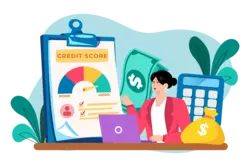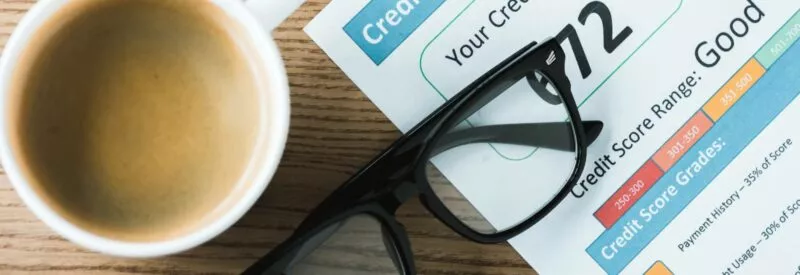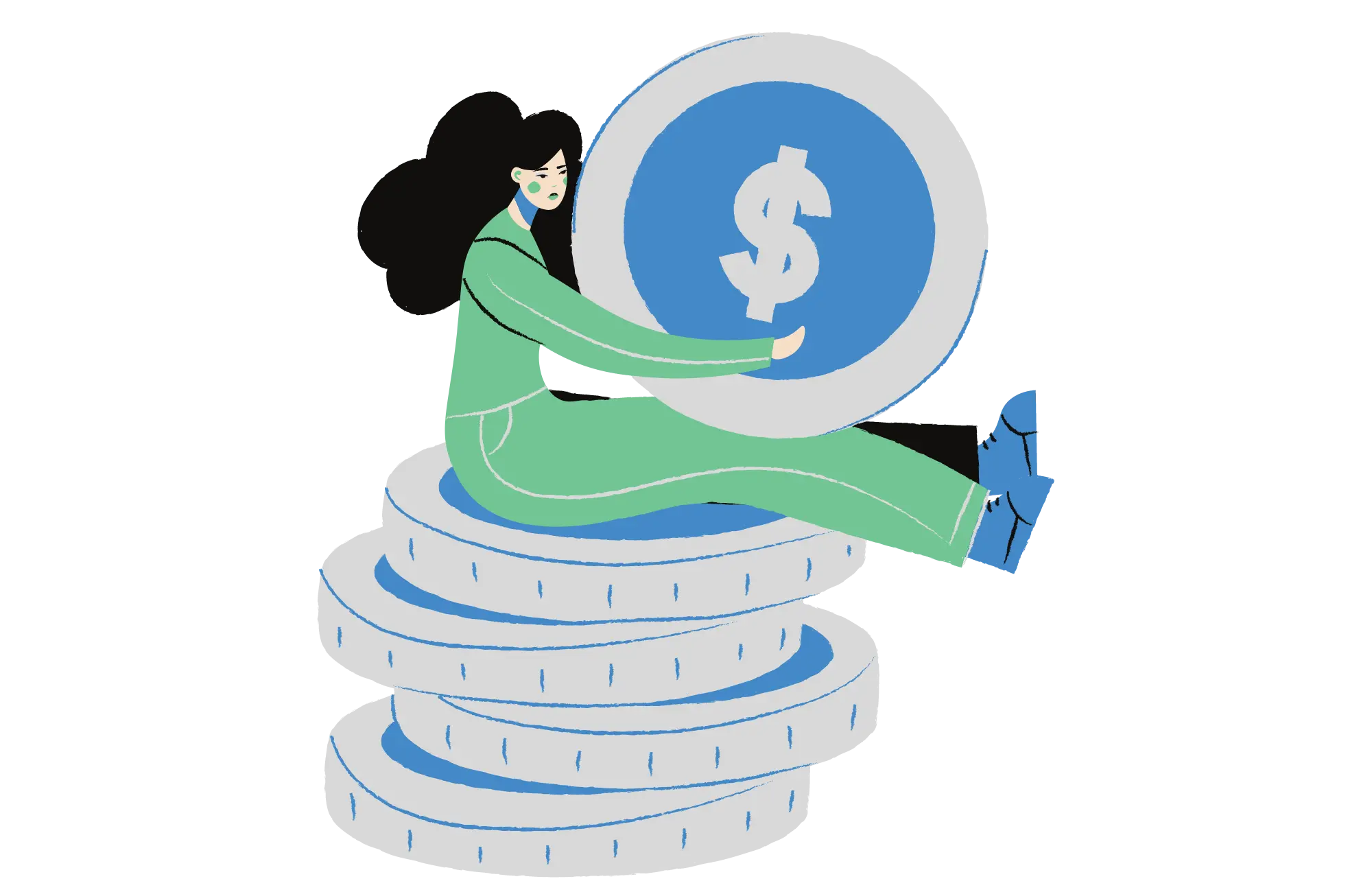Equifax’s business credit score is one of the most commonly used measures of creditworthiness, and it is considered to be a reliable indicator of how likely a borrower is to repay a loan. The scoring system that Equifax has in place factors in credit history, the amount of debt, the number of late payments, and more.
As a business owner, you will want to keep a close eye on your Equifax credit score because a good score will help you negotiate better terms if you are ever in need of a business loan. Take a look below as we dig deeper into Equifax, its importance, and how you can improve your Equifax credit score.
What Is Equifax?

Equifax is a credit reporting agency that provides credit reports, credit scores, and other financial information. It is one of the largest credit reporting agencies in the United States, along with Experian and TransUnion.
Equifax was founded in 1899 and is headquartered in Atlanta, Georgia. The company collects data from creditors, banks, credit card companies, and retailers, and then sells this data to businesses and consumers. Businesses use this data to decide whether to lend to or insure potential clients or see their financial health to take out loans of their own.
TransUnion vs Equifax vs Experian
There are 3 major players in credit reporting: TransUnion, Equifax, and Experian. Each company collects information on your credit history and compiles it into a report that lenders can use to assess your creditworthiness. So, what’s the difference between them?
TransUnion and Equifax are both nationwide consumer reporting agencies, while Experian is a global information services company. TransUnion and Equifax get their information from creditors. On the other hand, Experian gets its information from public records and direct sources. All 3 companies use different scoring models, so your score may vary depending on which one you check.
What Is an Equifax Business Credit Report?
As a business owner, you have two credit reports – your personal credit score and business credit report. The point of an Equifax business credit report is to show how trustworthy your business is, which allows you more financial opportunities. The business credit report is based on the following factors:
- Credit information: Contains all loans, lines of credit, business credit cards, and all other forms of credit
- Company information: Includes company name, website, email, phone number, DBAs, and more
- Finances: Consists of all finances from sales, inventory, bank account balances, property, and assets
- Payment history: This shows the history of how your business has repaid its debts and vendors in the past
- Equifax ID: This is a personalized number that Equifax assigns to all companies
Importance of the Equifax Business Credit Score
Depending on your financial requirements, your Equifax business credit score can be incredibly influential. Businesses with higher scores are more likely to be approved for loans and lines of credit. They also tend to receive lower interest rates and better terms. In short, the Equifax business credit score is an important tool for businesses of all sizes.
What Factors Affect an Equifax Business Credit Report?

There are 4 factors that can affect an Equifax business credit report. Let’s take a look at each one and break down how they affect your credit report.
- Public Record. Your public record includes rulings against your business such as credit lien, bankruptcies, etc. Usually, these types of rulings may have a negative impact on your credit score.
- Credit History. Equifax takes into consideration your credit history and credit inquiries. Typically, an older credit account is a good sign and an extensive list of credit inquiries will show as a red flag.
- Payment Trends. Equifax checks the last 2 years to see if you are making payments or if there are any delinquencies. Paying back debt in a timely manner shows positively on your credit report.
- Firmographics: Firmographic data includes information about your business, like company size, industry, sales/revenue, location, growth, and business framework.
How Can I Check My Equifax Business Credit Score?
To check your Equifax credit score, you’ll make your way to their website and submit a form to Equifax. A representative from their team will contact you directly to gather information about your business. From there you will receive access to your credit report in a portal. This will include your company profile, credit summary, public records, risk scores, and payment trends. You are also able to check a credit report of a company you plan to do business with to ensure they are reliable.

What is a good Equifax credit score?
Equifax Business has three different scoring methods: the payment index score, an Equifax score (traditional score), and the business failure risk score. Here is a general list that you can use to determine how you expect your business to score:
Payment index score:
- 90-100: All bills paid on time each month
- 80-89: One bill is past due by 1-30 days
- 60-79: Bills 31 to 69 days past due
- 40-59: Bills 61 to 90 days past due
- 20-39: Bills 91 to 120 days past due
- 1-19: Any bills later than 120 days past due
An Equifax credit score is a traditional credit score that will range from 101 to 992. Like before, the higher the score, the stronger your credit. Generally, anything over 556 is an acceptable credit score.
A failure risk score will range from 1001-1,610, with a lower number meaning that the business is a high risk.
How to Raise Equifax Credit Score
If your business has a low Equifax credit score, don’t panic. There are many things your company can do to raise or build your credit score. In this section, we will look at 5 ways your business can slowly raise its credit score.

Make payments on time
Making payments on time makes up about 35% of your credit score. Try to make all your payments on time because even one late payment will affect your credit score. One way to ensure your bills are paid on time is to set up auto pay a few days before the bill is actually due. This ensures your payment went through or allows buffer time for error.

Get a credit builder loan
A credit builder loan is a type of loan specifically designed to help people build their credit. Unlike most loans, they do not give the funds to the borrower upfront. Instead, the money is held in a savings account by the lender and only released after the borrower has made all of their payments on time. Credit builder loans often come with relatively low-interest rates and flexible repayment terms.

Track your Equifax business credit score
Keeping track of your Equifax business credit score will help you know where you’re at. Equifax has a credit monitoring program for $16.95 and will update you each month about your business credit score. Having access to your Equifax credit score will help follow your business credit activity and financial health.

Maintain the average age of your credit history
This simply means keeping accounts open. The older a credit line is, the more it helps your credit score. Every time you close an account, it may lower your credit score. So unless a card has high monthly or yearly fees, you may want to keep all accounts open as long as possible. Additionally, keeping as many accounts open will keep your credit limit higher, which can help with your credit utilization ratio.

Lower your credit card utilization
Credit utilization is the amount of credit you’re using compared to the amount of credit you have available. If you have a credit limit of $1000 and you’re using $500 of that, your credit utilization is 50%. Ideally, you want to keep your credit utilization below 30%. To lower your utilization ratio, pay down your balances so you’re using less of your available credit or ask for a higher credit limit from your card issuer.
Equifax Credit Score: Closing Thoughts
A credit report from Equifax is useful for businesses when making decisions about extending credit, setting credit limits, and determining interest rates. Equifax is a valuable resource for businesses that need to track their financial health if they plan to apply for business funding or would like to look at the credit activity of a potential business partner.
Equifax FAQs
Let’s take a look at some frequently asked questions about Equifax.
Is Equifax accurate?
Equifax is a big-name credit reporting agency, but that doesn’t necessarily mean it’s always accurate. If you’re relying on Equifax for your credit score, it’s important to check your report regularly for errors. Otherwise, you could unnecessarily pay higher interest rates or receive unjust denials for loans. Luckily, it’s relatively easy to dispute errors on your credit report. You can either do it yourself or hire a professional to help you.
Why is my Equifax score lower than my TransUnion score?
When comparing a TransUnion to an Equifax score, you may notice they are different. This is usually the case because of three key factors:
- TransUnion or Equifax may have different information: Some bureaus ask for more information, and/or may ask for the same information at different times.
- The scoring model between Equifax vs TransUnion could be different: Most credit score companies base their score on similar information, but sometimes the weight of each factor can differ between companies.
- The timing of the credit score: Depending on the timing, a bank account could have changed, or you may have missed a payment that wasn’t equally recorded. It’s likely your credit scores will differ depending on the day.
Why is my Equifax score lower than my Experian score?
Your Equifax score could be lower than your Experian score for several reasons. Let’s look at how each company computes its credit scores:
Experian takes these factors into consideration:
- Total outstanding debt
- Late payments
- Credit history length
- The types of accounts
Equifax takes the following factors into consideration:
- Payment history
- The types of accounts
- Credit utilization
- Credit history length
Because each company calculates credit scores in different ways, this could be the reason one credit score is lower than the other. It could also depend on the time of reporting as money moves around, accounts get older, or a bill gets missed – all of which can affect your credit score.
What is the highest Equifax credit score?
Equifax will give 3 scores: a payment index score, a traditional credit score, and a failure risk score. The highest scores are 100, 992, and 1,610, respectively.
When does Equifax update its score?
Equifax updates automatically between 7 and 30 days. If you have a change in your credit report, factors like making a payment, closing an account, or opening an account, the credit report may refresh sooner.
What is Equifax’s credit score used for?
Equifax’s credit score is used by lenders to determine whether or not to extend credit to a borrower. Those with higher credit scores are generally seen as less of a risk. While Equifax’s credit score is not the only factor that lenders consider when making lending decisions, it is an important one. Lenders who use Equifax’s credit score typically use it as one part of a larger assessment of a borrower’s creditworthiness.








